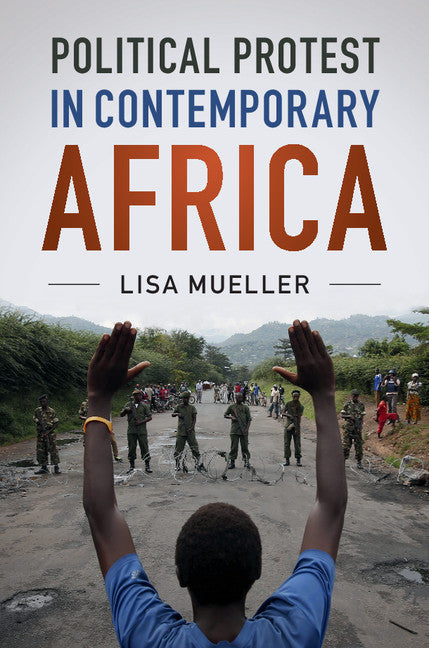Freshly Printed - allow 8 days lead
Couldn't load pickup availability
Political Protest in Contemporary Africa
Looking at protests from Senegal to Kenya, Lisa Mueller shows how cross-class coalitions fuel contemporary African protests across the continent.
Lisa Mueller (Author)
9781108438254, Cambridge University Press
Paperback / softback, published 28 June 2018
274 pages, 14 b/w illus. 2 maps
22.7 x 15.1 x 1.5 cm, 0.46 kg
'Lisa Mueller's excellent study of protest politics in Africa will no doubt prove to be the standard text on the topic. Based on fascinating primary source materials in several countries, and framed in a careful sociological understanding of the different motivations for protest across social classes, her book forces us to rethink our understanding of contentious politics in Africa.' Nicolas van de Walle, Cornell University, New York
From spray-painted slogans in Senegal to student uprisings in South Africa, twenty-first century Africa has seen an explosion of protests and social movements. But why? Protests flourish amidst an emerging middle class whose members desire political influence and possess the money, education, and political autonomy to effectively launch movements for democratic renewal. In contrast with pro-democracy protest leaders, rank-and-file protesters live at a subsistence level and are motivated by material concerns over any grievance against a ruling regime. Through extensive field research, Lisa Mueller shows that middle-class political grievances help explain the timing of protests, while lower-class material grievances explain the participation. By adapting a class-based analysis to African cases where class is often assumed to be irrelevant, Lisa Mueller provides a rigorous yet accessible explanation for why sub-Saharan Africa erupted in unrest at a time of apparent economic prosperity.
1. Introduction: the puzzle of Africa's third wave of protests
2. Defining Africa's protest waves
3. Paradoxes of prosperity
4. Comparative protest leadership: theories, trends, and strategies
5. Comparative individual participation in the third wave
6. Not-so-great expectations: pessimism and protest in Niger
7. Conclusion.
Subject Areas: Revolutionary groups & movements [JPWQ], Demonstrations & protest movements [JPWF], Pressure groups & lobbying [JPWD], Political activism [JPW], Political campaigning & advertising [JPVL], Central government [JPQ], African history [HBJH]


